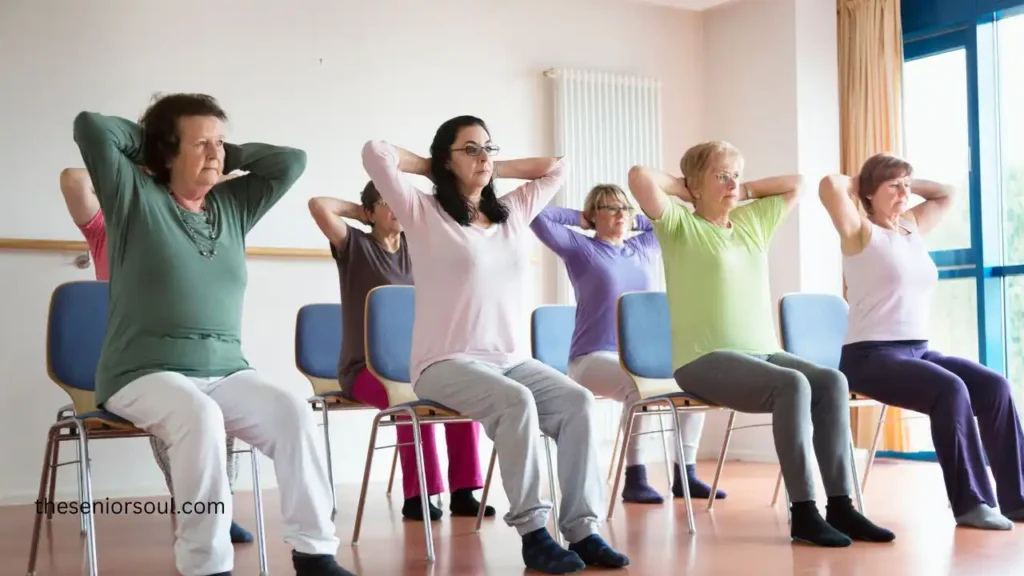Seeking Dynamic Things For Bored Seniors: Where to Find?

Don’t you think time stretches differently now? After retirement and the end of hectic activities, a peaceful emptiness appeared. It is possible that you will ask yourself, “What now?” The lingering shadow of boredom can make days seem endless and unfulfilling. I know. I’ve experienced this myself, watched friends deal with it, and found a plethora of ways to rekindle that interest. This is about enriching time, not about filling it.
Table of Contents
The Problem of Unfilled Time
Retirement offers a fantastic sense of first freedom. There will be no more strict deadlines or alarm clocks. However, if this freedom is not used, it can cause a feeling of loss. Social connection, routine, and purpose—all of these things that shaped our professional lives—can go away, leaving a gap.
Social interaction and mental stimulation are critical for preserving cognitive function in older persons, according to research from the National Institute on Aging. A deficiency in these might hasten cognitive deterioration and lead to feelings of loneliness and depression.
Consider this: our everyday conversations with coworkers and our problem-solving at work helped to keep our spirits high and our minds active. Feeling a little lost is normal when it abruptly ceases.
For instance, my neighbor Margaret, a lively former educator, at first cherished the tranquility of retirement. She seemed less enthusiastic, though, after a few months. One afternoon she admitted, “The days just blur together.” “I miss having something to look forward to.”
Her experience is hardly the only one. Retirees who reported little social interaction were far more likely to feel bored and lonely, according to a 2023 study published in the Journal of Gerontology: Social Sciences. This has to do with a basic human need for purpose and connection, not merely about being “not busy”…
The Frustration of Boredom
Not only is this boredom a minor annoyance, but it may be extremely upsetting. You may experience agitation, restlessness, or just plain indifference. The pastimes you used to like may no longer seem as interesting.
Even though you know yourself to be a lively, involved person, the days sometimes feel like a repetitive loop. This sense of inertia can be extremely discouraging. You feel as though you aren’t making use of your lifetime of expertise, understanding, and enthusiasm.
I have experienced this personally. The abrupt silence was unusual after years of a hectic profession. I tried several old pastimes, but there was no zeal. I had a persistent feeling that I wasn’t making the most of my days and that they were meaningless.
Recognizing a genuine emotional and mental problem is the goal here, not whining. According to research published in the International Journal of Aging and Human Development, extended periods of boredom in older persons are associated with higher anxiety levels and a lower sense of wellbeing. It’s an indication that something has to change and that your lively spirit and mind are itching to be involved.
Re-Engaging with Life’s Possibilities

The good news is that this level of ennui is temporary. There are innumerable “things for bored seniors” that can rekindle your interests, foster new relationships, and give your days a fresh sense of direction. It’s about taking a different approach and rediscovering old pleasures.
Accept Lifelong Learning
Knowledge is what your brain is made of. Think about taking online classes, attending community center workshops, or even using an app to learn a new language. Websites such as edX and Coursera provide a wide range of courses, from technology to history, frequently for free.
My friend David, a retired engineer, for example, took an online astronomy course and now enjoys stargazing for hours on end. A study published in Aging & Mental Health found that studying and other intellectually demanding activities for bored seniors are linked to a lower risk of cognitive decline.
Develop Your Creativity
Let your artistic side loose! Try writing, crocheting, drawing, learning to play an instrument, or even taking pictures. Local art centers frequently provide senior-focused beginning programs.
After discovering a love for watercolor, my aunt, who had never painted before retiring, now produces stunning landscape paintings. According to research published in the American Journal of Art Therapy, being creative can help people feel less stressed and more emotionally healthy.
Volunteer Your Time
Giving back to the community is a great way to connect with people and find meaning in life. Hospitals, animal shelters, and neighborhood libraries are just a few of the institutions that require volunteers. Giving your knowledge and expertise to others can be immensely fulfilling.
For instance, I teach tourists about local history as a volunteer at a historical organization in my community. According to a Corporation for National and Community Service survey, seniors who volunteer are more satisfied with their lives.
Keep Up Your Exercise
Exercise is essential for mental and physical well-being. Swim, try Tai Chi or moderate yoga, join a walking group, or simply go for regular walks around your neighborhood. Low-impact fitness sessions are offered by numerous senior facilities.
Margaret, my neighbor, joined a senior walking group after experiencing the negative consequences of boredom. She not only gained new acquaintances but also improved her physical health. The Journal of the American Geriatrics Society regularly publishes research that shows how physical activities for bored seniors that help older persons feel happier and think better.
The Centers for Disease Control and Prevention advise engaging in moderate-intensity physical activity for bored seniors at least 150 minutes each week.
Care for Social Relationships
Being alone might make boredom worse. Try to maintain relationships with loved ones, join social groups (gardening clubs, literature clubs, etc.), or take part in events at the senior center in your community. Even a simple video conference or phone conversation might have an impact.
I try to get coffee with pals at least once every week. Research in the Journals of Gerontology: Psychological Sciences and Social Sciences highlights how important social support is for preserving mental and emotional health as people age.
Examine Technology
Don’t be afraid to use technology! To interact with loved ones, discover internet resources, or take up new activities for bored seniors , learn how to operate a computer, tablet, or smartphone. Staying in contact with distant family members is made simple with video calling applications. Puzzles and online games can stimulate the mind. After originally being wary of technology, my uncle now enjoys playing chess online and video chatting with his grandchildren.
Rekindle Old Passions
Recall the activities you loved before life became too hectic. Maybe you had a passion for reading, gardening, or a certain sport. Rekindling these passions with fresh time and energy is ideal during retirement. I renewed my old stamp collection and take great delight in cataloging and studying various stamps.
Set Small, Achievable Goals
You can avoid boredom by having something to look forward to. Establish little, monthly or daily objectives, like going to the neighborhood park, trying a new recipe, or finishing a book. The completion of these modest objectives gives one a feeling of purpose and success.
Adopt Mindfulness and Relaxation
Techniques such as deep breathing and meditation can help boost general wellbeing and control restless feelings. Numerous guided meditation applications are available for free. Reflecting quietly for even a short while each day can have a significant impact. Mindfulness exercises may help older persons focus better and feel less stressed, according to research published in the Journal of Alternative and Complementary Medicine.
Plan Your Days
Although spontaneity is admirable, providing your day with a loose framework might help you avoid monotony. Make a flexible schedule that allows for social interaction, leisure, and enjoyable activities for bored seniors. This offers a structure for a more interesting day, but it doesn’t have to be strict.
These are but a handful of suggestions to get you going. Being willing to explore new things for bored seniors and discover what appeals to you is crucial. You can take your time discovering, learning, making connections, and rediscovering life’s pleasures.
TAKEAWAY
Retirement boredom is a regular occurrence that results from a reduction in social connection, structured activities, and a sense of purpose. Frustration, restlessness, and even a negative effect on mental and emotional health can result from this sense of wasted time.
However, seniors can effectively overcome boredom and improve their lives by actively seeking out new engagements and rediscovering old things for bored seniors.
Regaining happiness and engagement in retirement can be achieved through embracing lifelong learning, developing creativity, volunteering, maintaining an active lifestyle, fostering social relationships, experimenting with technology, taking up old interests, setting realistic goals, engaging in mindfulness exercises, and organizing daily activities for bored seniors.
A special chance for personal development and the search for satisfying experiences is presented by this stage of life.
RELATED POSTS
Why Is the Five Pillars of Aging the Secret to Healthy Aging?
How Quickly Can Gardening for Seniors Improve Your Strength?
51 Table Talks for Seniors to Stay Connected and Sharp
Frequently Asked Questions About Things For Bored Seniors:
What are some simple hobbies or things for bored seniors can start at home?
Simple pastimes include reading, knitting, crocheting, doing puzzles, writing letters, listening to music, growing small plants indoors, or using free applications to learn a new language. You can take your time and enjoy these hobbies with little equipment.
How can seniors socialize and meet new people after retirement?
Joining local senior centers, taking part in community activities, volunteering, attending religious services, enrolling in community college courses, or joining clubs based on their hobbies (such as gardening or book clubs) are all ways for seniors to interact with one another. Forums and online communities can also provide virtual connections.
What are some mentally stimulating activities for bored seniors?
Playing board games, learning a new language or skill, reading difficult novels, participating in conversations, writing, doing Sudoku or crossword puzzles, and engaging in creative pastimes like painting or playing an instrument are all examples of mentally stimulating activities.
How can technology help seniors combat boredom?
Video chats with loved ones, online tutorials and courses, brain-training games, virtual museum tours, and participation in online communities with similar interests are just a few of the ways that technology can help people fight boredom.
What are the benefits of volunteering for retired seniors?
Social interaction, a sense of purpose, and the chance to put one’s knowledge and abilities to use are all benefits of volunteering. It can boost self-esteem, lessen depressive and lonely feelings, and promote healthier living and a stronger sense of community.
How can physical activity help seniors who are feeling bored?
Exercise causes the release of endorphins, which improve mood. It can also boost energy levels, enhance the quality of sleep, and, if done in a group environment, offer chances for social contact. Lethargy and dullness can be fought by regular exercise.
What if a senior has limited mobility? What are some engaging activities for bored seniors?
Seniors who have limited mobility can still enjoy activities such as playing card games, listening to podcasts, reading audiobooks, practicing light chair exercises, doing sitting arts and crafts, or interacting with others via video chat or phone calls.
How can seniors rediscover old passions they may have neglected?
Retirement gives you time to pursue past interests. Seniors can join clubs or groups that interest them, participate in refresher courses, or just set aside time each day for an activity they used to like. They can also browse through old journals or photos to remember former hobbies.
What are some creative outlets for seniors who have never considered themselves artistic?
There is no prerequisite for creative outlets. Seniors can experiment with easy activities like adult coloring books, simple painting lessons, creative writing prompts, learning a few chords on an instrument, or even easy crafts like creating greeting cards.
How can seniors find a sense of purpose after leaving their careers?
Taking on new learning challenges, volunteering, mentoring younger people, pursuing a long-held personal goal, spending time with a cause they care about, or concentrating on enhancing connections with loved ones can all help people discover a new sense of purpose.






